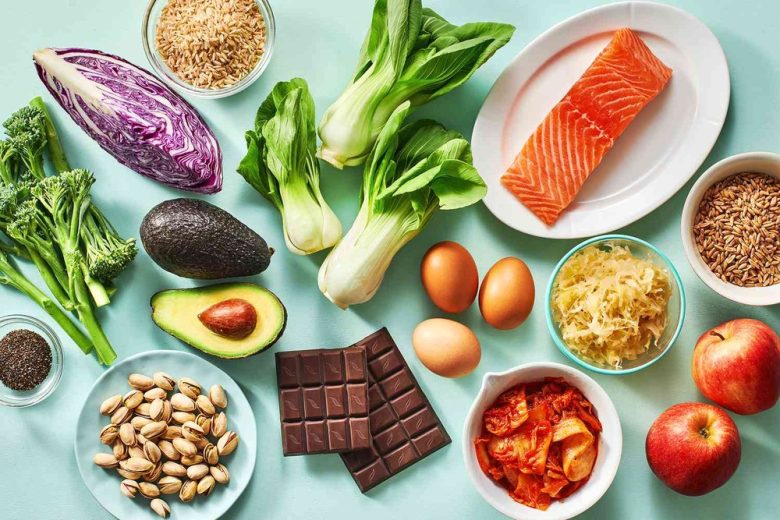Understanding how to eat well is not simply a fad; it is a decision which can change the quality of your life for the better. Look at food as it is: fuel for the body, mind, and one’s spirit. When you provide your body with the right components, you prepare yourself for active living. Good nutrition does not imply self-imposed abnegation or setting quotas, but the unification between all the foods a person chooses within his or her diet.
Have you ever imagined waking up, feeling full of energy and focus, looking forward to conquering any challenges stylishly? Sounds funny? That is the magic of eating properly. It is not simply a determinant of how one feels, but it also affects one’s mental state in an equally important manner. Let us take time to elaborate more on the composition of a balanced diet and its benefits which are much more expansive than just calorie count and weight loss. Here begins your progress in bettering yourself.
What Are the Components That Make Up a Balanced Diet?
In a balanced diet, variety is included along with moderation; thus, it does not deal with starvation. Additional food groups are also needed that are composed of the essential macronutrients.
Fruits and vegetables should assume primary importance. They provide vitamins, minerals, and fibres. Fulfilling this goal implies aiming for multi colour plates since every colour contributes to the well-being of an individual.
Whole grains are also another component. Energizing foods, such as brown rice, quinoa and whole wheat bread, can also provide important B vitamins.
The proper functioning of the proteins is crucial, especially when it comes to muscle recovery and muscle growth. Be sure to add lean meat, fish, beans, or nuts to your diet for the supportive elements of your body.
Don’t forget healthy fats! Brainpower sources such as avocados, olive oil, and fatty fish can fill you up while boosting your brainpower.
Hydration matters too; water should be taken freely so as not to interfere with normal functioning of the body. Measure these ingredients and you will have a good nutritional foundation for good health.
The physical benefits of a balanced diet:
Balanced nutrition provides the nutrition that the body is longing for. By consuming different types of foods, each with its own respective energy content, you equip yourself with enough energy to perform daily or regular activities. This increase in energy can dramatically change how you feel for the rest of the day.
Another crucial benefit is weight control measure. There is a very slim chance that having a diet consisting of whole grains, lean proteins, fruits and vegetables will lead to obesity. Such foods are often high in nutrition but low in calories instead.
Even disease prevention is of much importance too. In particular, a diet with lots of vitamins and antioxidants boosts the immune system and is helpful in the fight against chronic diseases such as heart problems and diabetes. Being used to such advantageous food would be generally advantageous for your health over a long time, and that is too late to realize.
The mental benefits of a balanced diet:
In addition to physical health, proper nutrition has also beneficial effects on the mental aspect. Mentality cannot also escape the effects of favourable feeds. Fresh fruits, vegetables, wholemeal cereals and healthy fats are essential in keeping moods in check. Some foods help in the production of serotonin, which is the hormone responsible for feeling good. Bananas and salmon are some of the good foods that can temper smiling and elicit happiness. Of course, processed sugars would do nothing but slow your body down or make you moody.
Most importantly, attention and focus can also be acquired through balanced diets. Notably, omega-3 fatty acids from fish are good for the brain and increase memory angle. A diet high in phytochemicals can protect the brain from overactive neurons, thus facilitating clear thoughts.
Thus, correct nutrition not only calibrates emotional effects but also improves concentration, motivation, and imaginative undertaking. This is how nutrition improves decision-making and general productivity throughout the day.
Strategies for Balanced Diet in Busy Times:
Eating clean and balanced despite the busy schedule is hard especially if you do not have a proper plan in place. First and foremost, learn to prep ahead. You can devote a couple of hours during the weekend to chop vegetables and cook grains. This will ease your burden on busy workdays. Include quick snacks in your routine. Nuts, yogurt or any piece of fruit examples are very portable and nutritious and require no preparation.
It is better to not have a meal at all than to do so and have it in smaller quantities; that’s the idea and use that for all the meals. That makes it possible for one to keep up with their level of energy as well as curb the feeling of hunger. Embrace the use of the available technology, especially food diary, in order to achieve your goals. You will find quite a few apps that help keep track of what you eat and when, as well as ways to eat healthier. Let’s make a few rules on how to eat out or order food in. Instead of fried foods, wheeze those that are grilled and ensure that protein-packed salads are on the menu.
Benefits Of Adopting A Balanced Diet For Resultant Effects On Health:
Nutrition goes beyond the intake of food; a balanced diet also has other positive effects on the individual. Each healthy food contributes to the extent to which an individual feels and day in and day out regarding everything and even feelings. You’re improving your health on all fronts when you eat the right food, and when you don’t, you’re not improving your mental well-being as well. Different vitamins and nutrients are sometimes used to elevate moods and relieve anxiety.
Additionally, having a tolerant diet helps maintain this health aspect and is beneficial for mental focus and emotional wellbeing. A well-functioning digestive system reflects a well-functioning brain because the two have an indirect relationship. The psychological components also play a role here. Eating such colourful and diverse meals creates a bond with other people, adding those essential building blocks falling under emotional support. It is also rational to look for good nutrition, as this provides a foundation for all aspects of life, encouraging better choices and control over one’s health choices.
Conclusion:
The importance of a well-balanced diet cannot be overemphasized. Its impact is not only in the physical health but also designs positive perceptions and even the moods of individuals. If good nutrition is prioritized, health takes care of itself. Every time food is put into the plate, it is a chance to nourish the body and also the brain. Such benefits are reaped in numerous ways, among them increased energy and good moods.
Change does not mean one has to be perfect. The best way to eat recipe can be modified slightly and positive results achieved over a period of time. Always seek for change and give your body what it craves for. The importance of healthy food habits improves the quality of life in every way, leading to longevity and improved happiness. This system of choice improves wellness in all possible aspects: physically, psychologically, and emotionally.
FAQs:
1. What is the first thing you should do to begin eating a balanced diet?
Start with an evaluation of the dietary habits that you have. Over time, include more fruits and vegetables, whole grains, and low-fat protein, and decrease the processed food and sugar.
2. How frequently should I enter meals to achieve balance?
Sustained energy is achieved by eating little portions over a period of time. In most cases, three meals are enough, together with healthy snacks in-between if necessary.
3. Is it permissible to cheat on a balanced diet from time to time, or will one every day stay on this path?
Yes! Moderate consumption is the answer. Once in a while, feasting does help in averting the feelings of deprivation that may lead to binge eating.
4. Are there some diets that are aimed at balance?
Mediterranean and DASH clearly follow the whole food principles as diets that focus on rich in nutrients food options while offering’ anything goes’ kind of eating plans.
5. Where does hydration feature in a balanced diet?
Adequate water intake is a necessity for good health, and it also facilitates the digestion and absorption of nutrients from the food that you eat.




